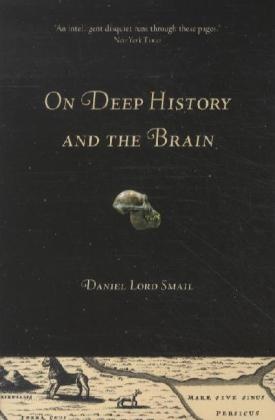Read more
Zusatztext “An enjoyable and creative book. . . . its flavour and neurohistorical approach are original and provocative.” Informationen zum Autor Daniel Lord Smail is Professor of History at Harvard University. He is the author of Imaginary Cartographies (1999), which won the American Historical Association's Herbert Baxter Adams Prize and the Social Science History Association's President's Award; The Consumption of Justice (2003), which won the Law and Society Association's James Willard Hurst Prize; and co-editor of Fama: The Politics of Talk and Reputation in Medieval Europe (2003). Klappentext "This is surely a new paradigm for the study of history that will be regarded as revolutionary but which is also well justified. To my knowledge, no other book integrates the study of human history with principles of biological and cultural evolution on such an ambitious scale."--David Sloan Wilson, author of Darwin's Cathedral: Evolution, Religion and the Nature of Society "This is one of the most exciting books I've read in years. It is so accessible, so groundbreaking, so stimulating, so important that I imagine the next generation of historians will be deeply influenced by what Smail has to say here. Simply dazzling."--Lynn Hunt, author of Inventing Human Rights Zusammenfassung Dissolves the logic of a beginning based on writing, civilization, or historical consciousness and offers a model for a history that escapes the continuing grip of the Judeo-Christian time frame. This book presents a case for bringing neuroscience and neurobiology into the realm of history. Inhaltsverzeichnis Preface Introduction: Toward Reunion in History 1. The Grip of Sacred History 2. Resistance 3. Between Darwin and Lamarck 4. The New Neurohistory 5. Civilization and Psychotropy Epilogue: Looking Ahead Notes Bibliography of Works Cited Index ...

